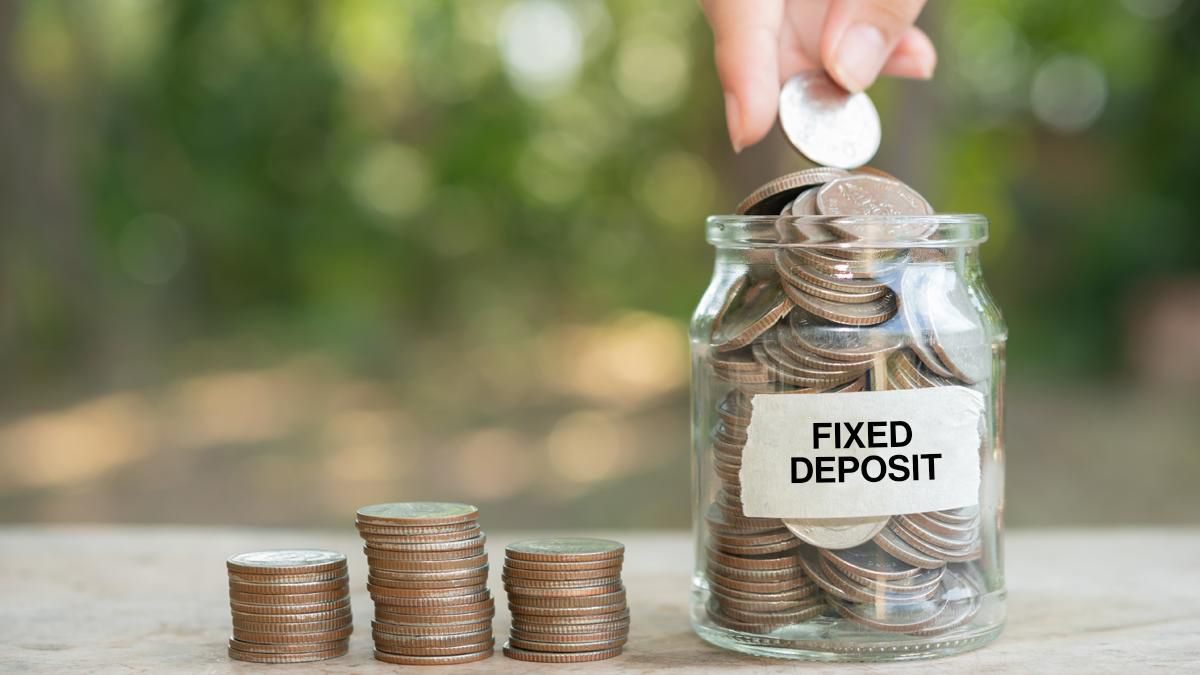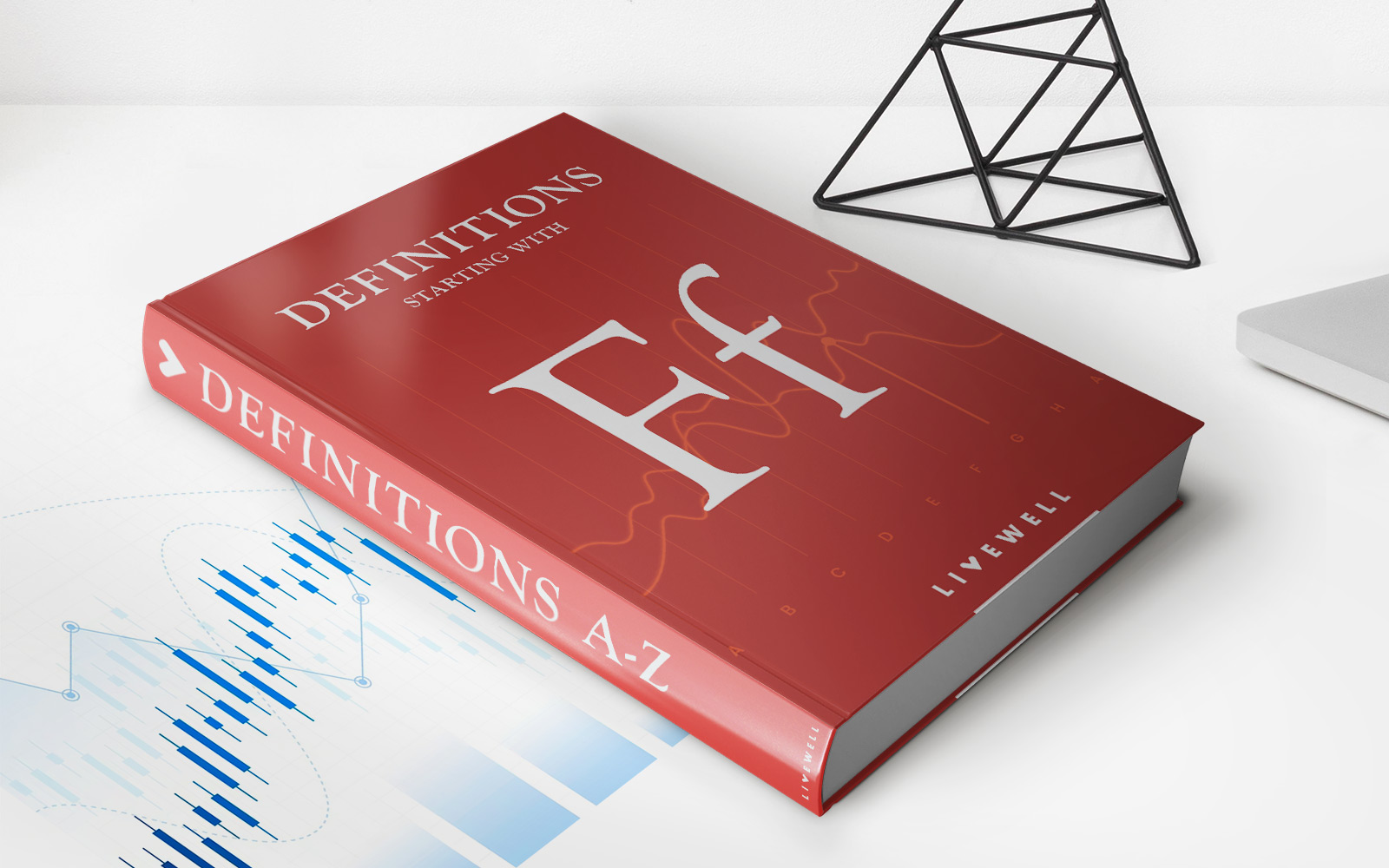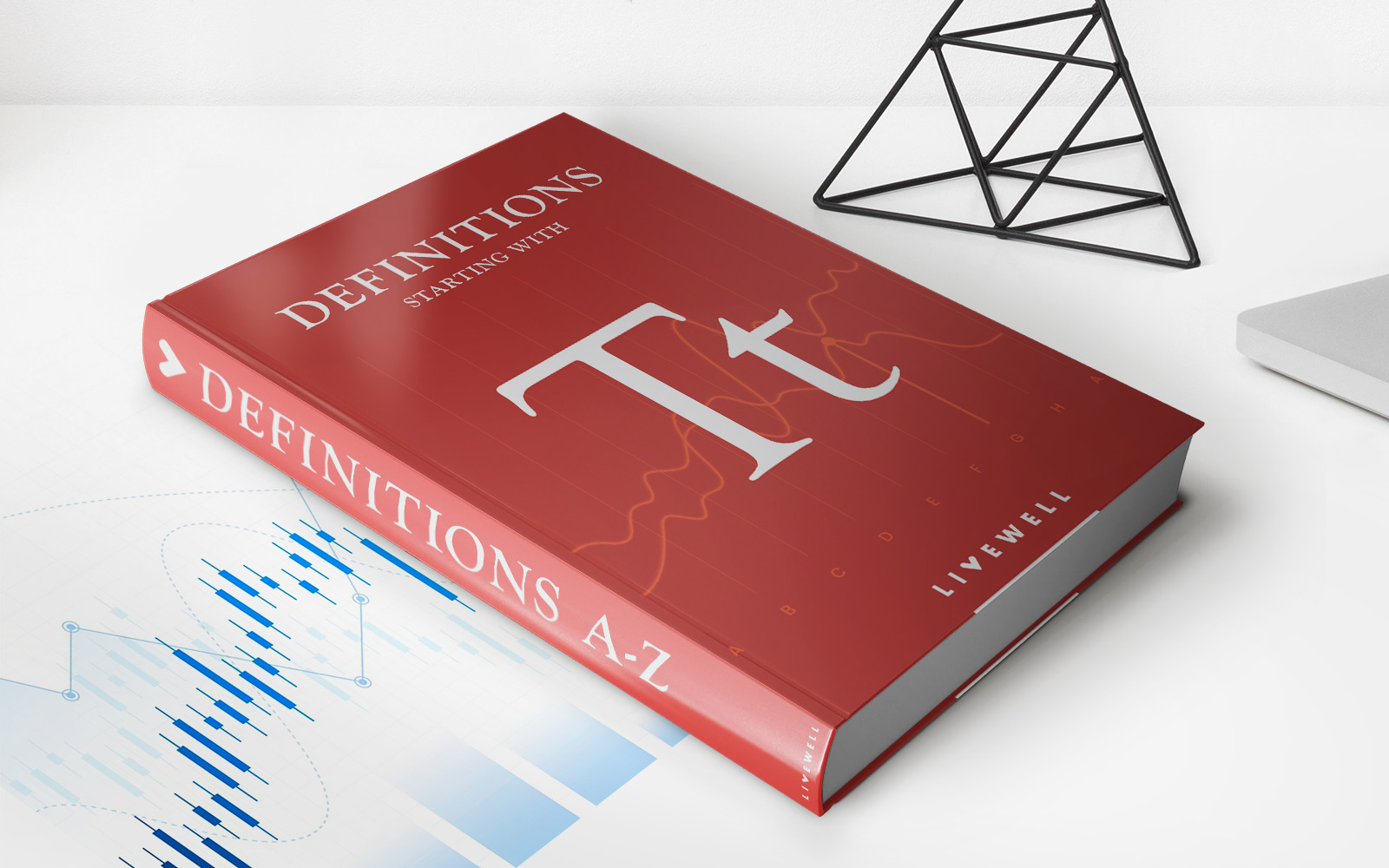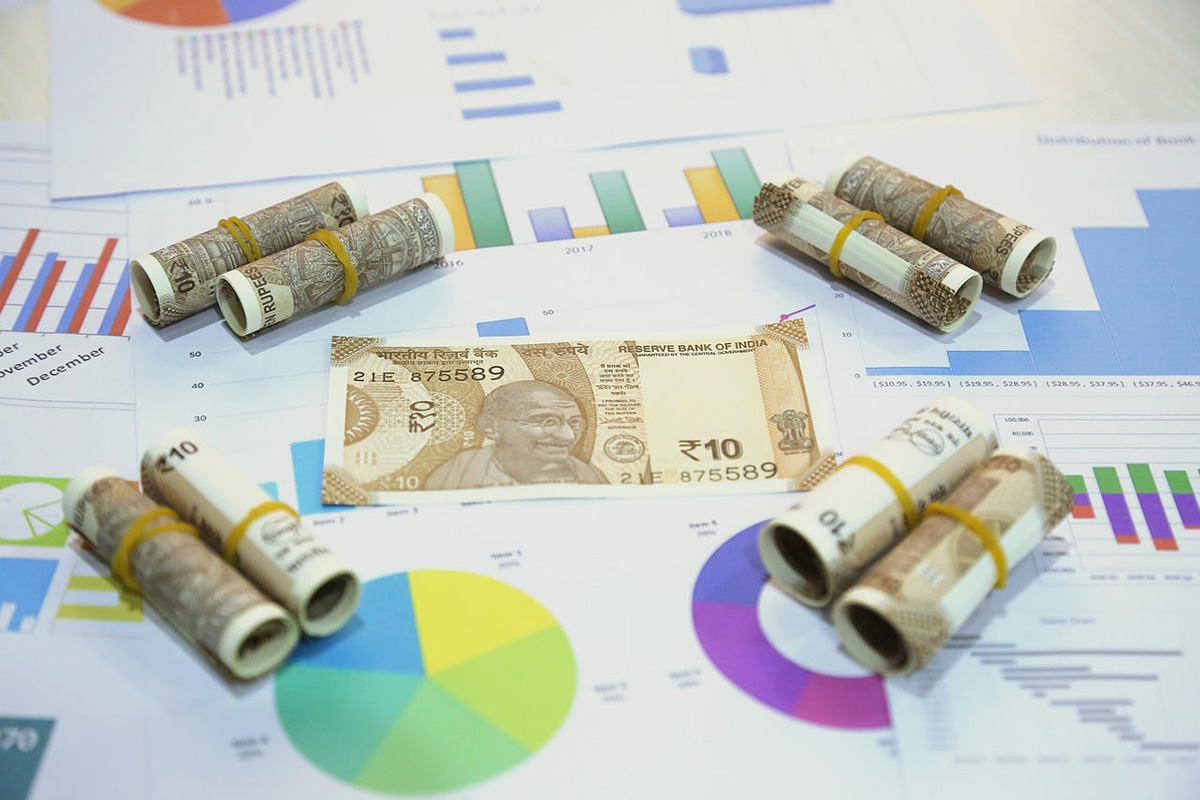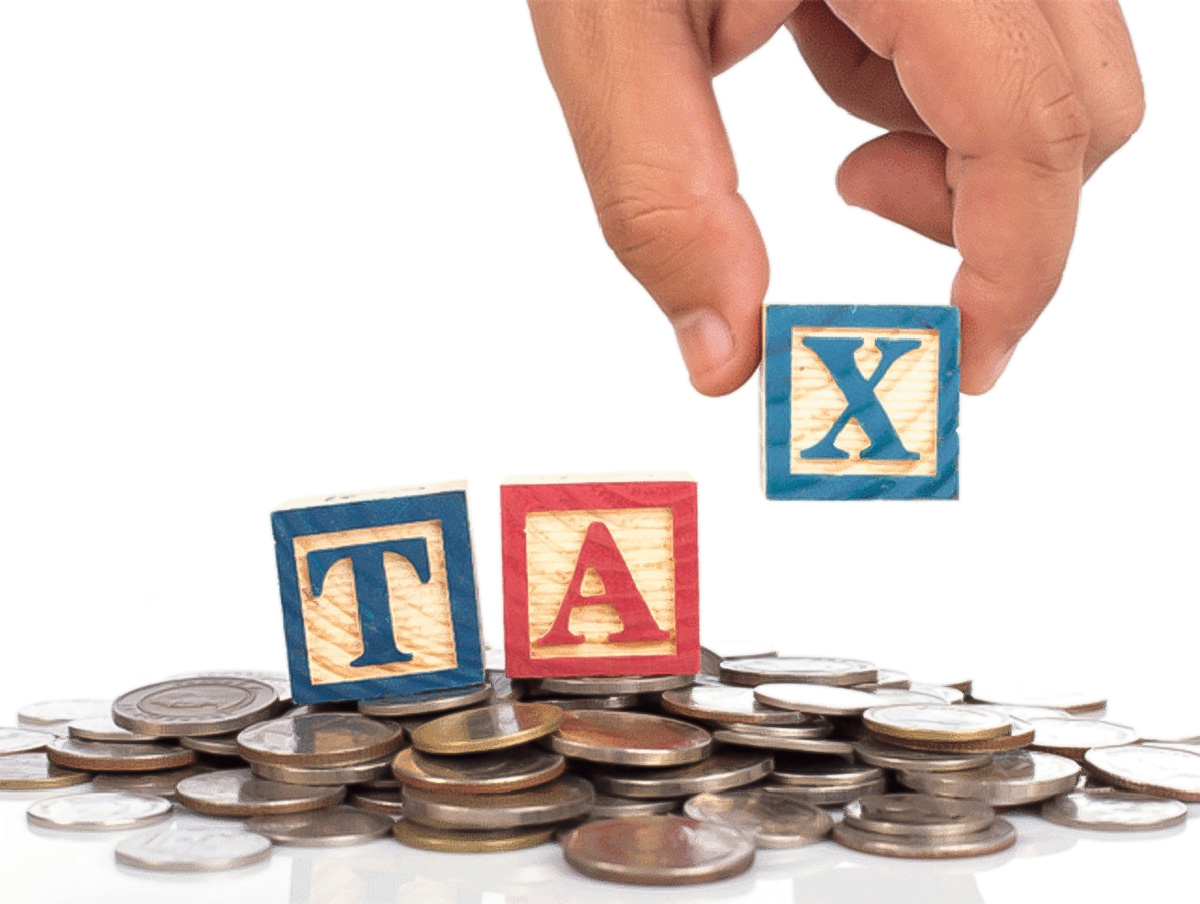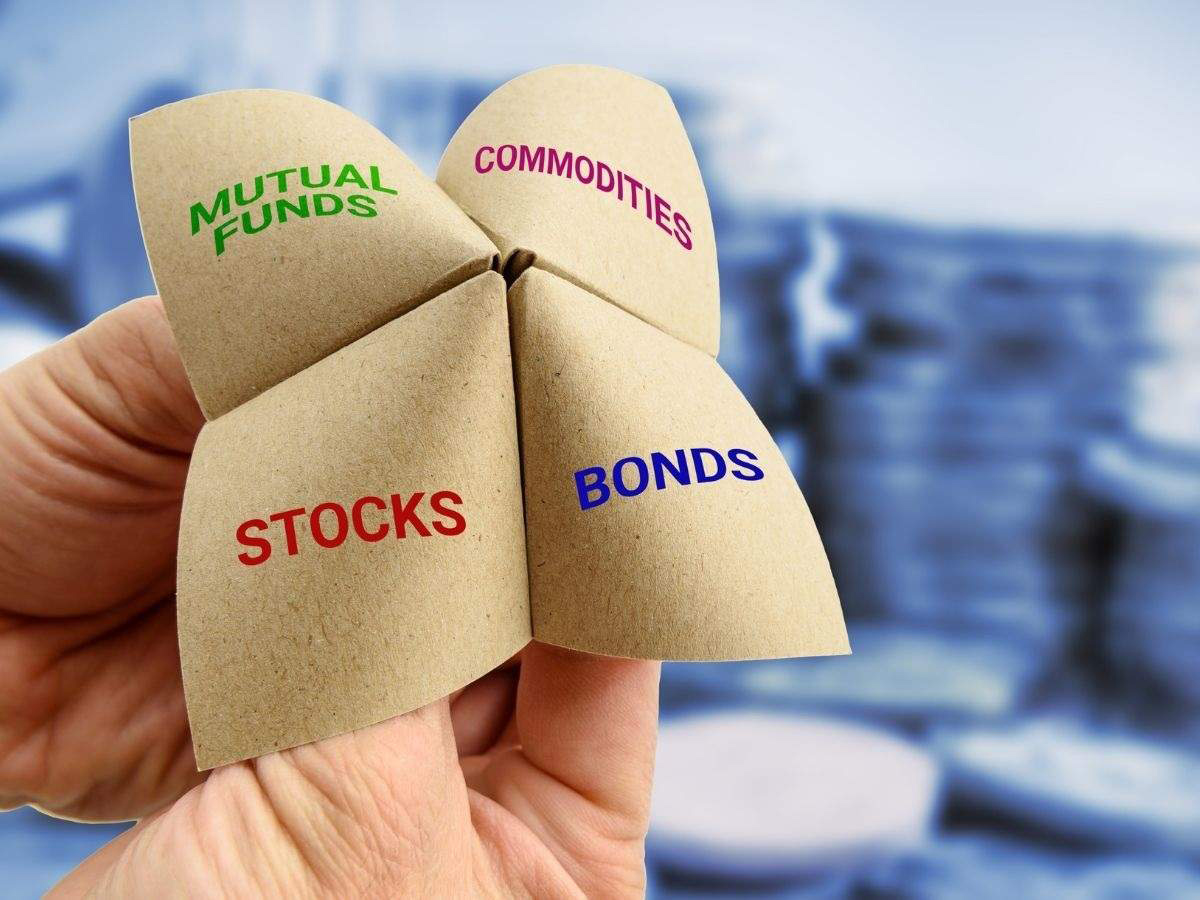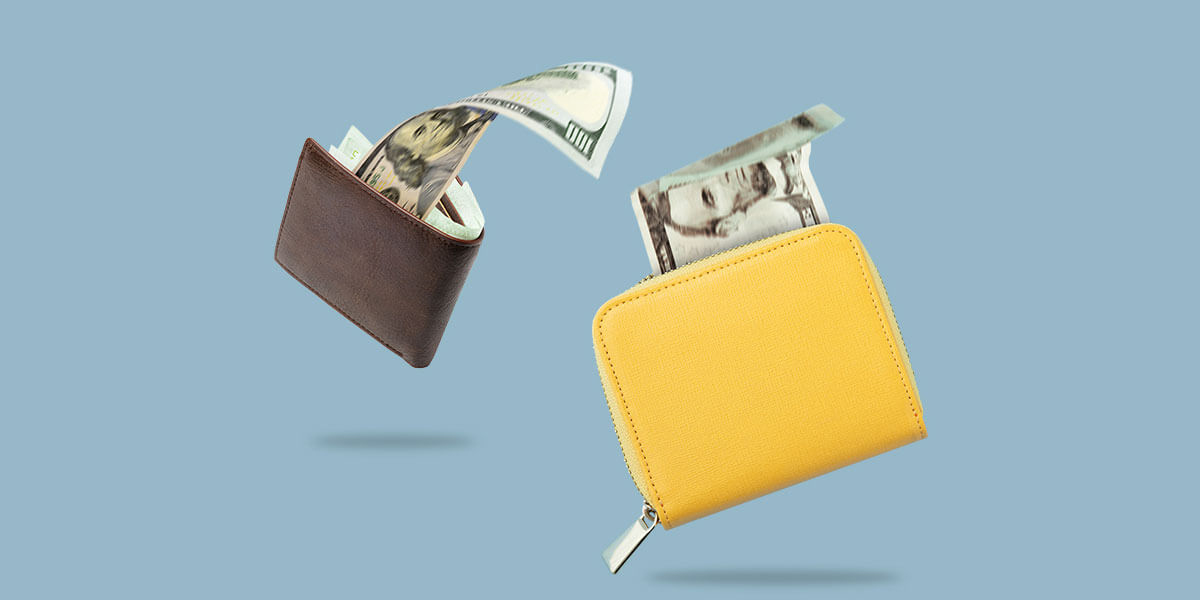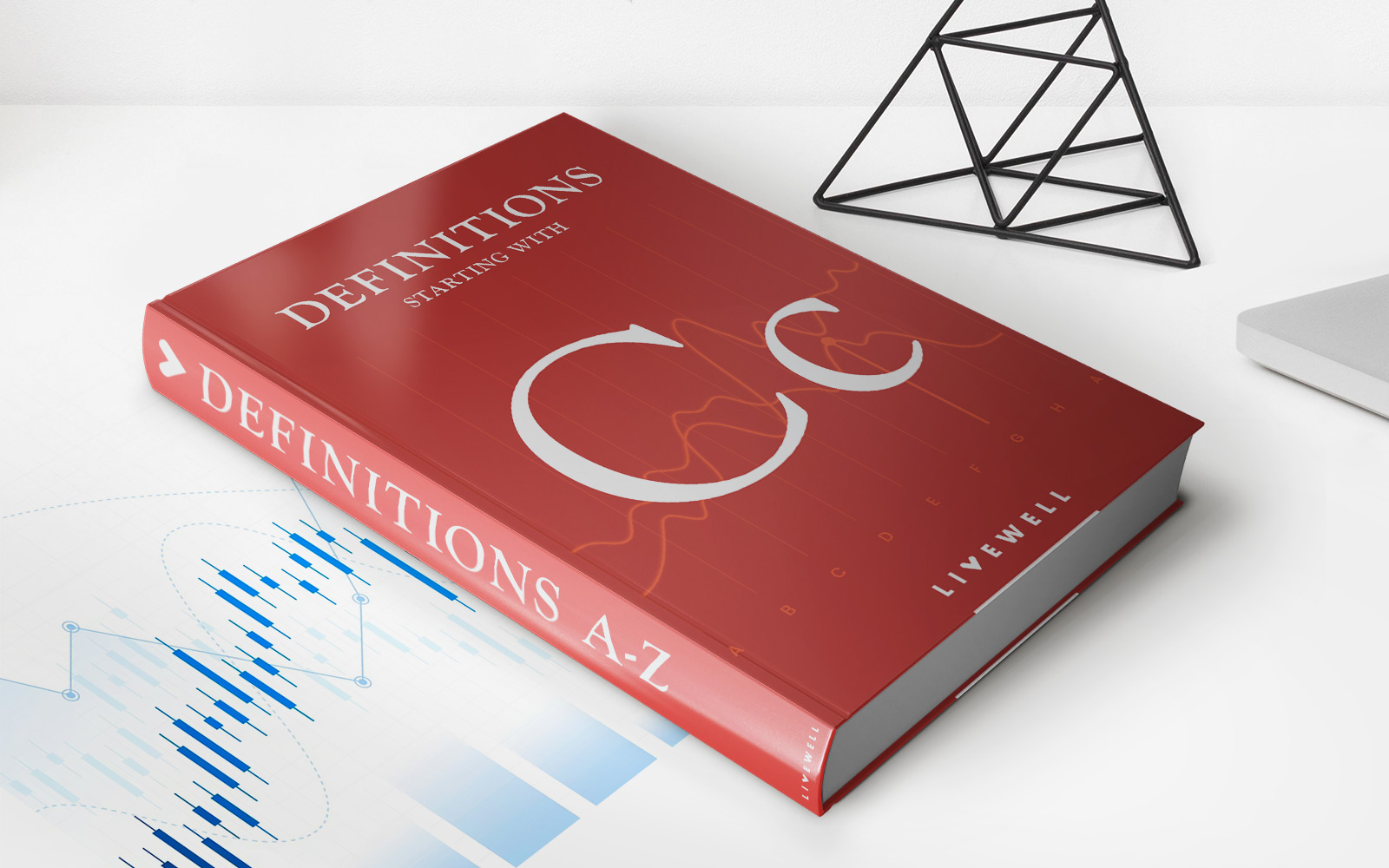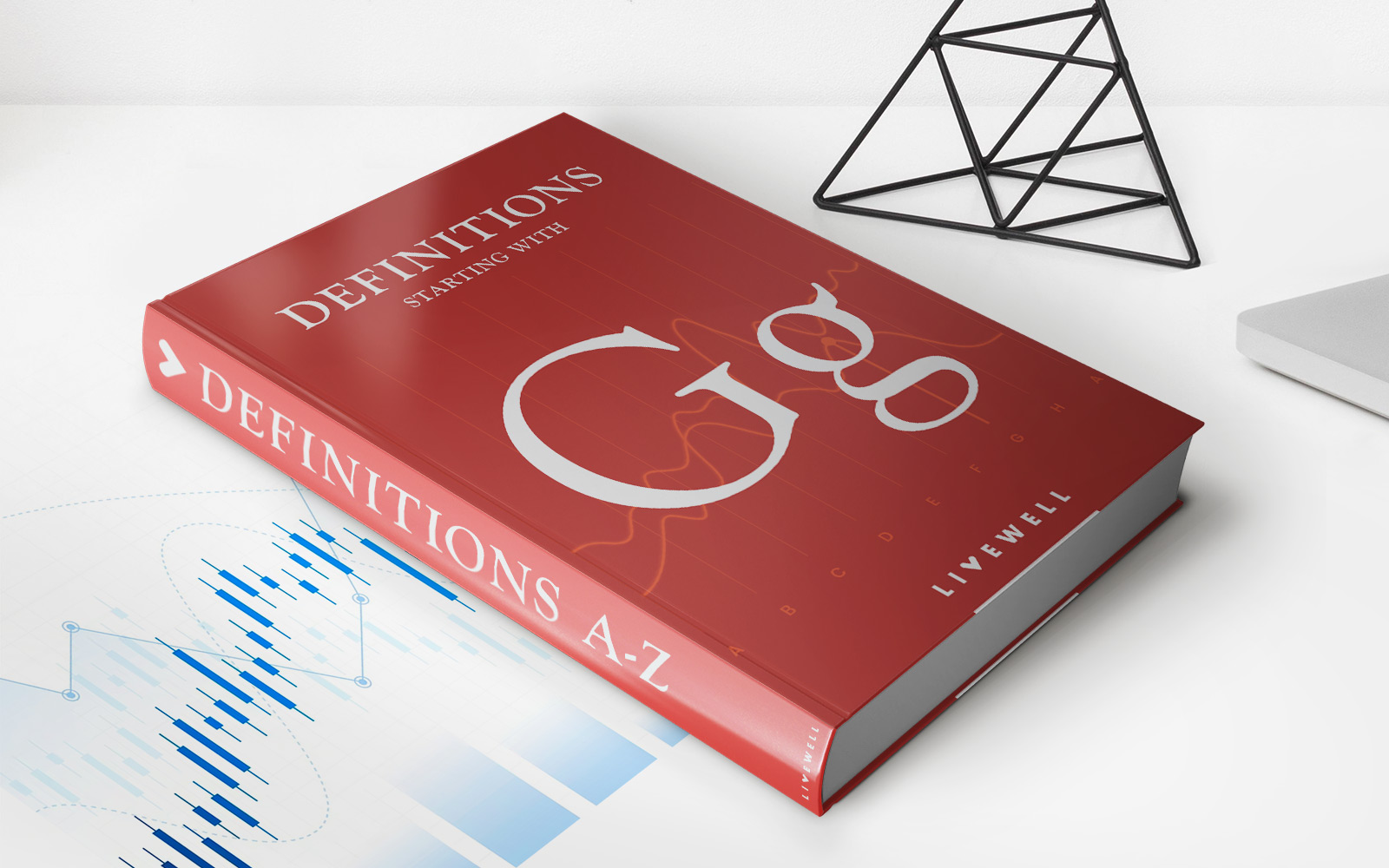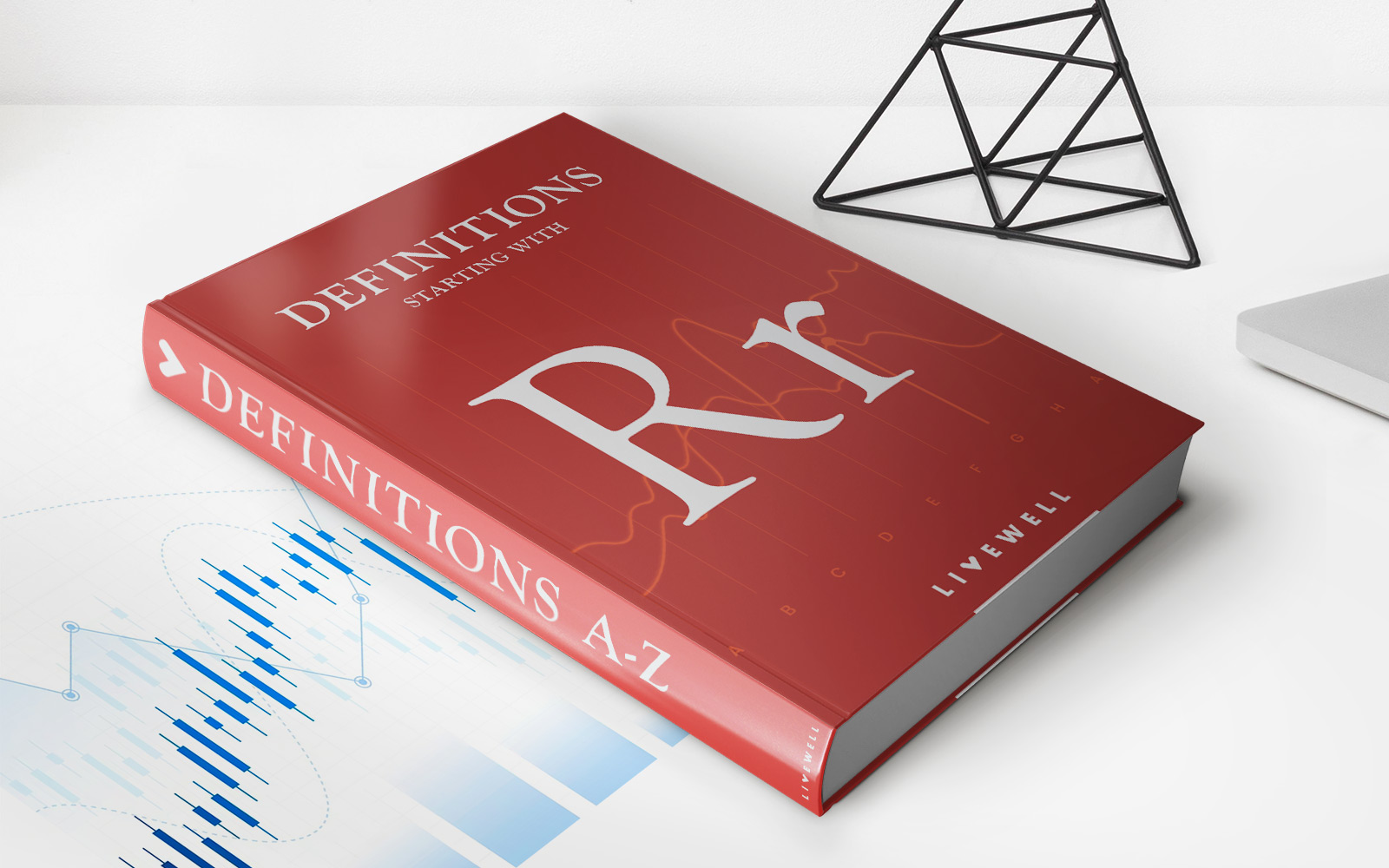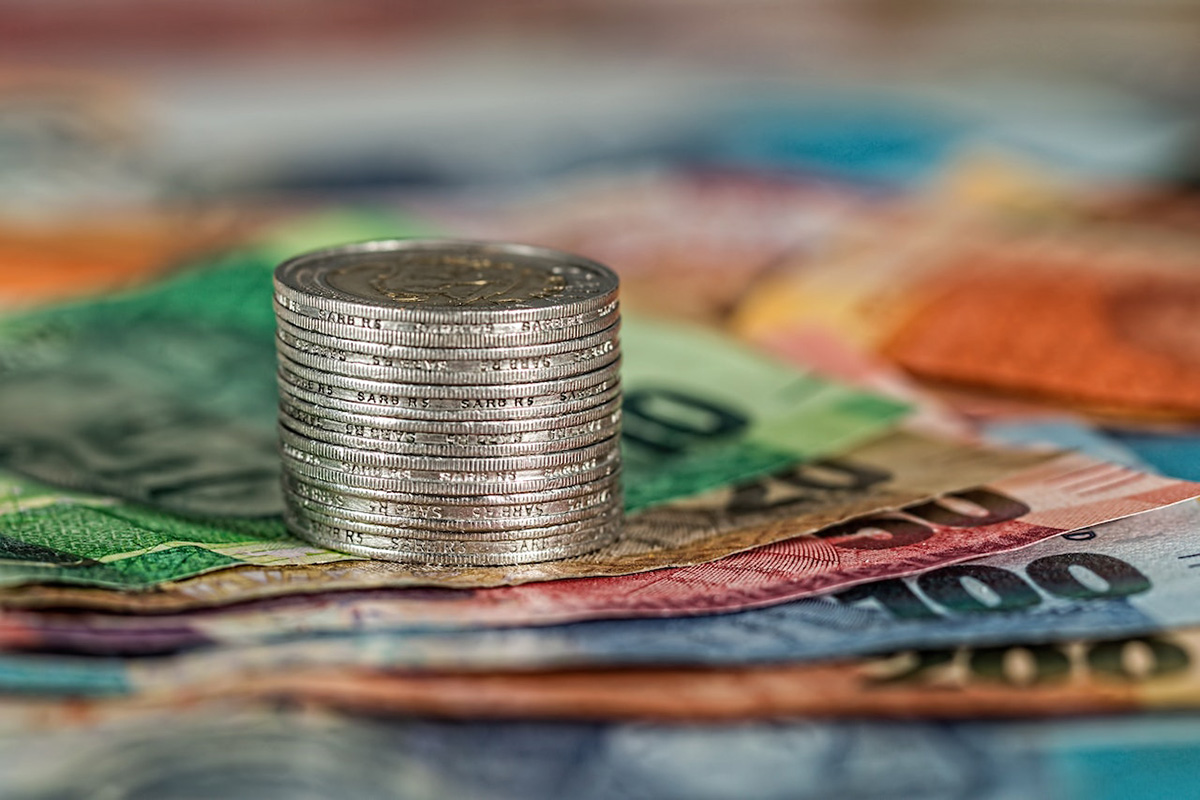

Finance
How Does Fixed Deposits Work
Published: December 22, 2023
Discover how fixed deposits work and their importance in finance. Learn about the benefits and features of fixed deposit accounts for secure investment.
(Many of the links in this article redirect to a specific reviewed product. Your purchase of these products through affiliate links helps to generate commission for LiveWell, at no extra cost. Learn more)
Table of Contents
Introduction
Fixed deposits are a popular investment option for individuals looking to earn stable and secure returns on their savings. In today’s uncertain economic climate, where market volatility and inflation pose risks to investments, fixed deposits offer a reliable way to grow your money.
A fixed deposit, also known as a term deposit or time deposit, is a financial instrument offered by banks and financial institutions. It allows you to deposit a sum of money for a predetermined period at a fixed interest rate. Unlike other investment options, fixed deposits provide a guaranteed return on your investment at the end of the tenure.
Fixed deposits are an attractive choice for individuals who prioritize capital preservation and want to earn a fixed income without exposure to market fluctuations. They offer a secure way to grow your savings and are ideal for short-term and long-term financial goals.
In this article, we will delve deeper into how fixed deposits work, the benefits they offer, the risks involved, and the factors you should consider before investing in one. Whether you are a seasoned investor or new to the world of finance, understanding the intricacies of fixed deposits can help you make informed decisions about your financial future.
What is a Fixed Deposit?
A fixed deposit is a financial product offered by banks and other financial institutions, where individuals can deposit a sum of money for a specific period of time at a predetermined interest rate. It is also commonly referred to as a term deposit or time deposit.
When you open a fixed deposit account, you agree to keep your money with the bank for a specified period known as the tenure. The tenure can range from a few months to several years, depending on your preference and the options offered by the bank. During this period, your money accrues interest at the predetermined rate.
The interest on fixed deposits is typically higher than that of a regular savings account, making it an attractive investment option for individuals looking to earn a fixed income on their savings. The interest rate offered may vary based on factors such as the tenure of the deposit, the amount deposited, and prevailing market conditions.
At the end of the tenure, you can choose to either withdraw your deposit or renew it for another term. If you decide to withdraw your deposit, the bank will return the principal amount along with the accrued interest to your designated account. It’s important to note that withdrawing your deposit before the maturity date may result in penalties or a reduced interest rate.
Fixed deposits provide a sense of security and stability as they are not subject to market fluctuations. The interest rates offered on fixed deposits are predetermined and remain fixed throughout the tenure, providing investors with a predictable return on their investment.
Fixed deposits are a popular choice for individuals looking to achieve short-term financial goals, such as saving for a down payment on a home or a vacation, as well as long-term goals, such as retirement planning. The flexibility in choosing the tenure allows individuals to align their investment with their specific goal and time horizon.
Overall, fixed deposits offer a secure and reliable way to grow your savings while providing a fixed income stream. However, it’s essential to weigh the benefits and risks before investing in a fixed deposit and consider your financial goals, liquidity needs, and alternative investment options.
How Does a Fixed Deposit Work?
Fixed deposits work by allowing individuals to deposit a specific amount of money with a bank or financial institution for a fixed period of time, known as the tenure. Here’s a step-by-step breakdown of how a fixed deposit works:
- Choosing a Bank: The first step is to choose a bank or financial institution that offers fixed deposit accounts with favorable interest rates and terms.
- Opening an Account: Once you have selected the bank, you will need to open a fixed deposit account. This involves providing the necessary documents, such as identification proof and address proof, and completing the necessary paperwork.
- Selecting the Tenure: You will then need to decide on the tenure for which you want to keep your money invested. Fixed deposit tenures can range from a few months to several years.
- Deciding the Deposit Amount: Next, you will need to determine the amount you wish to deposit into the fixed deposit account. Different banks have different minimum deposit requirements, so ensure that you meet the minimum criteria.
- Choosing the Interest Rate Option: Banks offer two types of interest rate options for fixed deposits: fixed and floating. With a fixed interest rate, the rate remains constant throughout the entire tenure, while with a floating interest rate, the rate may change depending on market conditions.
- Calculating and Monitoring Interest Accrual: The bank will calculate the interest on your fixed deposit based on the interest rate and the tenure. You can monitor the interest accrual and the maturity value using the bank’s online banking portal or by contacting the bank’s customer service.
- Earning Interest: The interest on fixed deposits can be paid out on a monthly, quarterly, or annual basis, depending on the terms and conditions set by the bank. You can also choose to reinvest the interest and accumulate it with the principal amount, compounding your returns.
- Withdrawal or Renewal: At the end of the tenure, you will have the option to withdraw the deposit along with the accrued interest or renew the deposit for another term. If you choose to renew, the interest rate may be renegotiated based on prevailing market rates.
It’s important to note that breaking a fixed deposit before the maturity date may result in penalties or a reduced interest rate. Therefore, it is advisable to carefully consider the tenure and ensure that you do not need the funds during the deposit period.
By understanding how a fixed deposit works, you can make an informed decision about whether it aligns with your financial goals and risk appetite. It is always recommended to compare different banks’ offerings and seek professional advice before investing in a fixed deposit.
Benefits of Fixed Deposits
Fixed deposits offer numerous benefits for individuals seeking a secure and conservative investment option. Here are some of the key advantages:
- Guaranteed Returns: One of the primary benefits of fixed deposits is that they provide a guaranteed return on investment. Unlike other investment options, the interest rate offered on fixed deposits is fixed and remains unchanged throughout the tenure, ensuring a predictable income stream.
- Capital Preservation: Fixed deposits are considered low-risk investments as they are not subject to market fluctuations. Your principal amount is preserved and returned to you in full at the end of the tenure, irrespective of market conditions.
- Attractive Interest Rates: Banks often offer higher interest rates on fixed deposits compared to regular savings accounts. This allows you to earn a higher return on your savings and grow your wealth over time.
- Flexible Tenure Options: Fixed deposits come with flexible tenure options, allowing you to choose the duration that suits your financial goals. You can opt for short-term deposits to meet immediate financial requirements or long-term deposits to accumulate wealth over a longer period.
- Easy Accessibility: Fixed deposits are easily accessible as most banks offer online banking facilities, allowing you to open, monitor, and manage your deposits conveniently from anywhere. This accessibility provides flexibility and ease of management for investors.
- Loan Facility: Fixed deposits can be used as collateral to obtain loans from banks. By placing your fixed deposit as security, you can avail of a loan at a lower interest rate compared to unsecured loans.
- Financial Discipline: Investing in fixed deposits promotes financial discipline as the funds are locked for a specific period. This discourages impulsive spending and encourages savings and long-term financial planning.
- Tax Benefits: Fixed deposits offer tax benefits in the form of tax deduction at source (TDS) exemption up to a certain limit. However, it’s important to note that the interest earned is taxable as per the prevailing tax laws in your country.
- Wide Range of Options: Banks and financial institutions offer a wide range of fixed deposit options, including senior citizen deposits, special tenure deposits, and more. These options cater to diverse investor needs and provide additional benefits such as higher interest rates for senior citizens.
Fixed deposits provide a secure and reliable investment avenue, particularly for risk-averse individuals seeking stability and steady returns. However, it is crucial to assess your financial goals, liquidity needs, and overall investment strategy before allocating funds to fixed deposits.
Risks of Fixed Deposits
While fixed deposits are generally considered to be a low-risk investment option, it is important to be aware of the potential risks associated with them. Here are some key risks to consider:
- Interest Rate Risk: Fixed deposits are subject to interest rate risk, especially when you opt for long-term deposits. If interest rates rise in the market during your fixed deposit tenure, your investment may earn a lower return compared to prevailing market rates. It is crucial to carefully assess the interest rate scenario before locking in your funds.
- Liquidity Risk: Fixed deposits have a fixed tenure, and withdrawing your funds before the maturity date can result in penalties or a reduced interest rate. This lack of liquidity may pose challenges if you need access to your funds in case of emergencies. It’s important to assess your liquidity needs before committing to a fixed deposit.
- Default Risk: While fixed deposits are considered safe as they are offered by banks, there is still a small risk of default. In the unfortunate event of a bank failure, there may be a delay in recovering your funds or potential loss of some or all of your investment. It is advisable to choose reputable banks and financial institutions with a strong track record.
- Inflation Risk: Fixed deposits may expose you to inflation risk, particularly if the interest rate offered does not keep pace with inflation. Over time, the purchasing power of your funds may erode, leading to a decrease in the real value of your investment. It is important to consider inflation and choose interest rates that provide a sufficient cushion against it.
- Opportunity Cost: By investing in fixed deposits, you forego the opportunity to invest in potentially higher-yielding or more flexible investment options. If other investment avenues present more attractive returns or align better with your financial goals, you might miss out on those opportunities by tying up your funds in fixed deposits.
- Tax Implications: The interest earned on fixed deposits is taxable as per the prevailing tax laws in your country. The tax liability can reduce the effective return on your investment, impacting your overall earnings. It is important to factor in the tax implications while considering the net return from your fixed deposit.
While the risks associated with fixed deposits may be relatively low compared to other investment options, it is crucial to carefully evaluate these risks and assess your risk tolerance and investment objectives. Diversification across different asset classes can help mitigate the risks and provide a balanced investment portfolio.
Factors to Consider Before Investing in Fixed Deposits
Before investing in fixed deposits, it is essential to examine several factors to ensure that they align with your financial goals, risk tolerance, and overall investment strategy. Here are some key considerations:
- Interest Rates: Compare the interest rates offered by different banks and financial institutions. Look for competitive rates that provide a satisfactory return on your investment. Keep in mind that interest rates may vary based on the tenure, deposit amount, and prevailing market conditions.
- Tenure Duration: Determine the optimal tenure that suits your financial goals. Short-term deposits may be suitable for immediate financial needs, while long-term deposits can provide more significant returns over time. Consider your liquidity requirements and the impact of locking your funds for a specific period.
- Financial Stability: Assess the financial stability and reputation of the bank or financial institution before investing your money. Look for established institutions with a strong track record of honoring their commitments and providing excellent customer service.
- Deposit Insurance: Check if your deposits are covered by a deposit insurance scheme. Some countries have deposit insurance schemes that protect a certain amount per account holder in the event of a bank failure. Having this coverage adds an extra layer of security to your investment.
- Tax Implications: Understand the tax implications on the interest earned from fixed deposits. Different countries have varying tax laws and regulations regarding the taxation of fixed deposit interest. Consider the tax liability and how it may impact your overall earnings.
- Inflation: Consider the impact of inflation on your fixed deposit returns. If the interest rate offered does not outpace inflation, the purchasing power of your funds may erode over time. Evaluate the real rate of return after adjusting for inflation to ensure your investment maintains its value.
- Diversification: Evaluate the overall diversification of your investment portfolio. Fixed deposits provide stability but may not offer the highest returns. Assess whether your investment portfolio includes other asset classes, such as equities or bonds, that can provide growth and balance the risk-reward tradeoff.
- Personal Financial Goals: Consider your specific financial goals and how fixed deposits contribute to achieving them. Whether it is saving for a down payment on a house, funding education expenses, or retirement planning, ensure that investing in fixed deposits aligns with your objectives and time horizon.
By carefully considering these factors, you can make an informed decision about whether investing in fixed deposits is the right choice for you. It’s advisable to consult a financial advisor or wealth manager who can provide personalized guidance based on your unique financial situation and long-term goals.
Conclusion
Fixed deposits offer a secure and reliable investment option for individuals looking to grow their savings and earn a fixed income. They provide guaranteed returns, capital preservation, and attractive interest rates, making them an appealing choice for risk-averse investors. The flexibility in tenure options allows for customization based on individual financial goals and time horizons.
While fixed deposits have numerous benefits, it is important to carefully consider the potential risks involved. Factors such as interest rate fluctuations, liquidity constraints, default risk, and inflation can impact the overall return and value of your investment. It is crucial to assess these risks and see how they align with your risk appetite and investment objectives.
Prior to investing in fixed deposits, it is advisable to compare interest rates, evaluate the financial stability of the institution, and consider deposit insurance coverage. Assessing tax implications, inflation, and the need for diversification across your investment portfolio are also critical components of the decision-making process.
Ultimately, fixed deposits can be a valuable component of a well-rounded investment strategy, offering stability, reliable returns, and preservation of capital. However, it is recommended to seek professional advice and develop a comprehensive financial plan that takes into account your specific circumstances, objectives, and potential alternatives.
By carefully considering the benefits, risks, and factors involved in investing in fixed deposits, you can make informed decisions that align with your financial goals and help pave the way to a secure and prosperous future.
